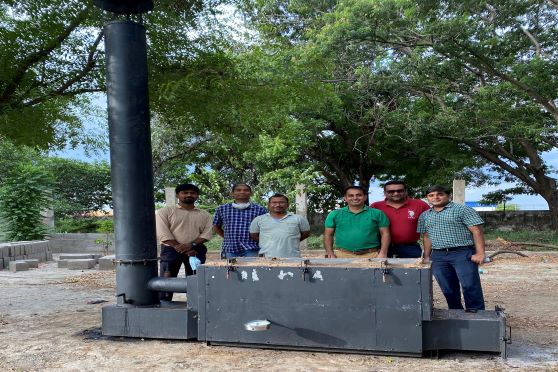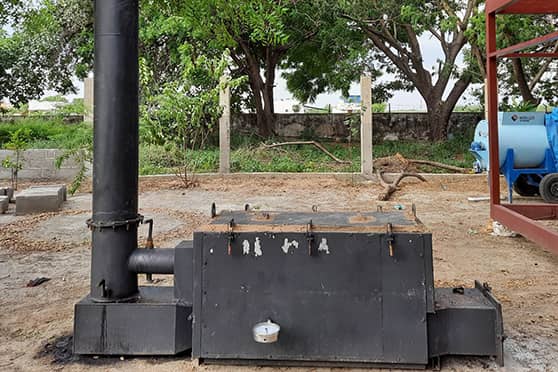IIT Guwahati researchers develop low-cost INDCR to make charcoal from solid waste


Indian Institute of Technology (IIT) Guwahati researchers have developed a novel low-cost Improved Natural Draft Charcoal Retort (INDCR) with the aim to address the technological and capital investment challenges of Indian charcoal makers.
Charcoal is widely used as a fuel for domestic and industrial heating applications. Most developed countries are producing industrial charcoal through the retort system. However, it was not available for Indian charcoal producers owing to technological barriers and the need for higher capital investment.
The National Thermal Power Corporation (NTPC) Limited had organised an open competition – Green Charcoal Hackathon 2020 as part of its ‘Wing for Waste to Energy Projects’ initiative – where IIT Guwahati innovators had presented the INDCR as participants.
After further evaluation and mentorship by NTPC officials, the developed reactor will now be demonstrated at the Township of NTPC Ramagundam Thermal Power Station in Telangana to produce 5 tonnes of charcoal per day from Municipal Solid Waste (MSW).

The developed charcoal retort reactor was also installed and tested at Paramakudi in Ramanathapuram district, Tamil Nadu, with the fabrication help of Optima Heat Technologies.
Arunkumar Chandrasekaran and Senthilmurugan Subbiah, professors at IIT Guwahati’s department of Chemical Engineering, were the lead innovators of the INDCR system. They have filed an Indian patent for the design of this innovative reactor.
Subbiah said, “The innovative reactor is proven to produce high-quality charcoal from a wide range of feedstock, and it’s designed to use its own feedstock as heating fuel. This reactor is portable to agricultural fields, and it is proven to convert all the agricultural waste to charcoal without the noxious gas emissions,” said Subbiah.
Biomasses like prosopis juliflora, Casuarina equisetifolia, Bambusoideae, Biomass briquettes, wood pellets and Refuse-Derived Fuel (RDF) briquettes were chosen by the researchers from municipal solid waste as the input feedstock for charcoal making process.
“This technology transfer will enable further research and development in IIT Guwahati to design a higher capacity reactor system to produce an industrial-grade charcoal irrespective of any input loading feedstock with a higher mass and energy yield and lower emissions,” Subbiah added.
The definition of good quality charcoal depends on its end-user. Hence, the retort reactor has been developed to be capable of producing charcoal in higher mass yield ranging from 34%-42%; versatile quality of fixed carbon of 76%-88%; higher energy content of about 6400-7200 kcal; minimal noxious emission; and lesser carbonization time (4 hours).
The retort system operates in an environmentally friendly way with very low emissions of Carbon Monoxide, Carbon Dioxide, Hydrocarbons and particulate matter.